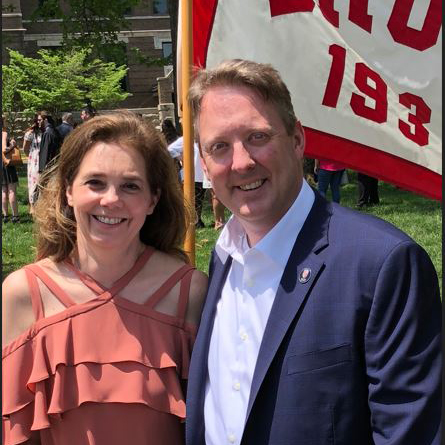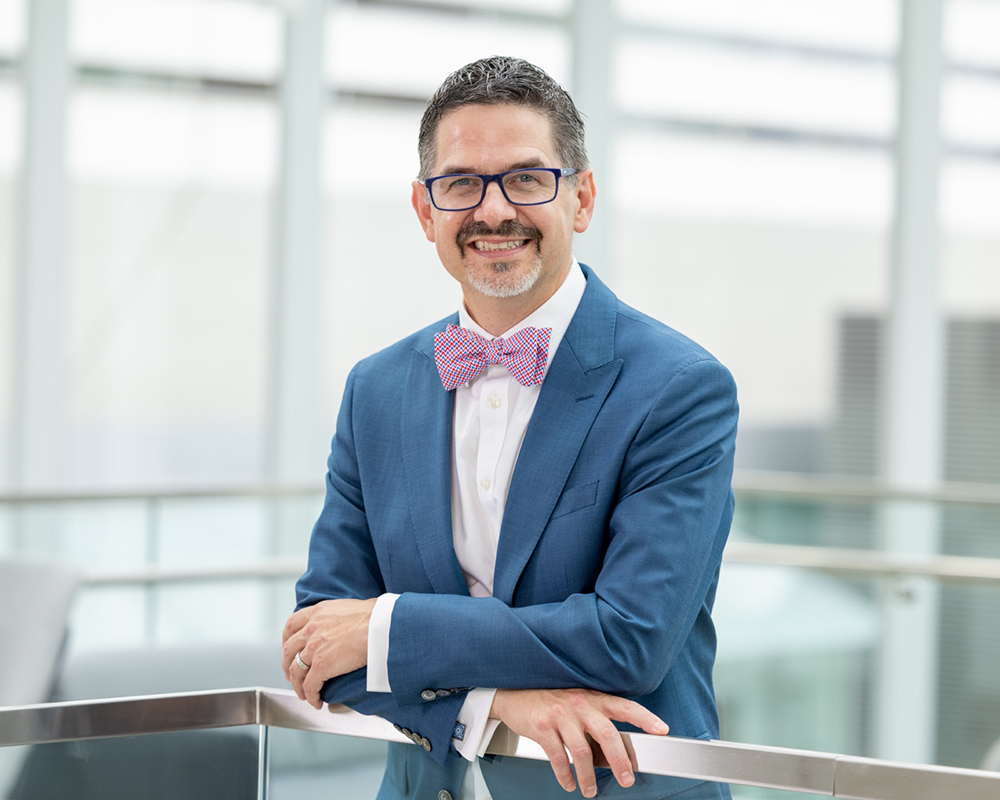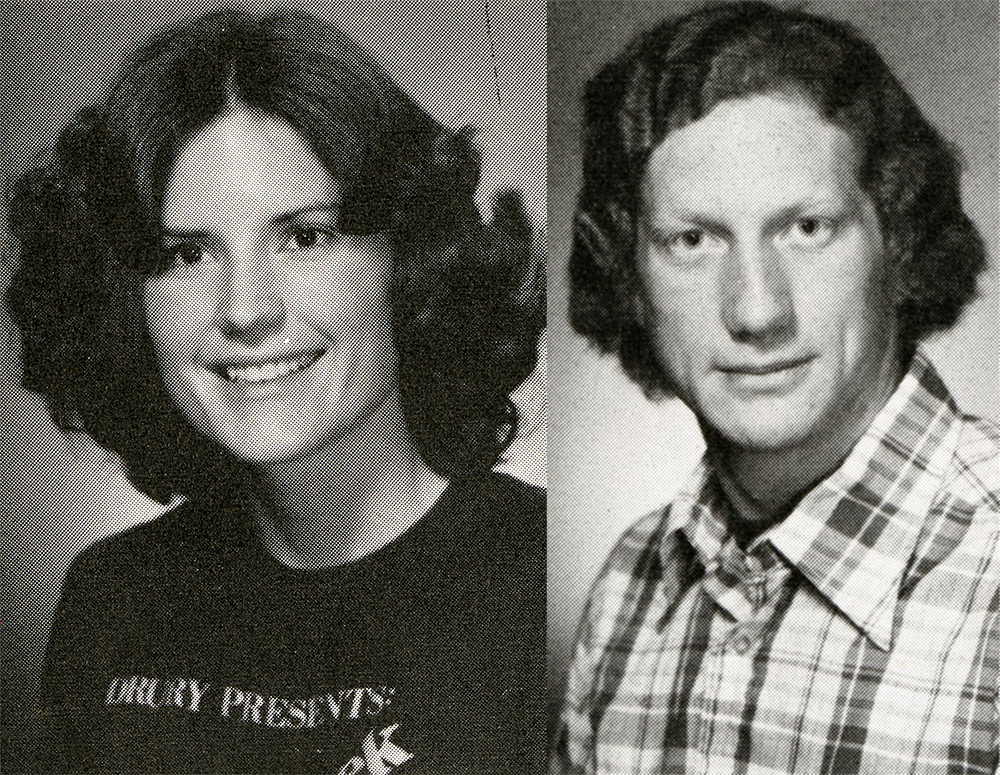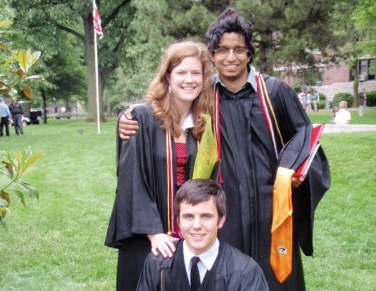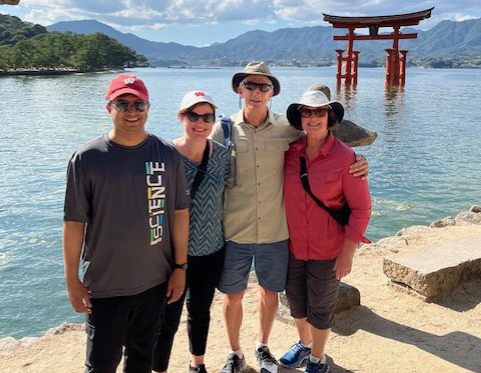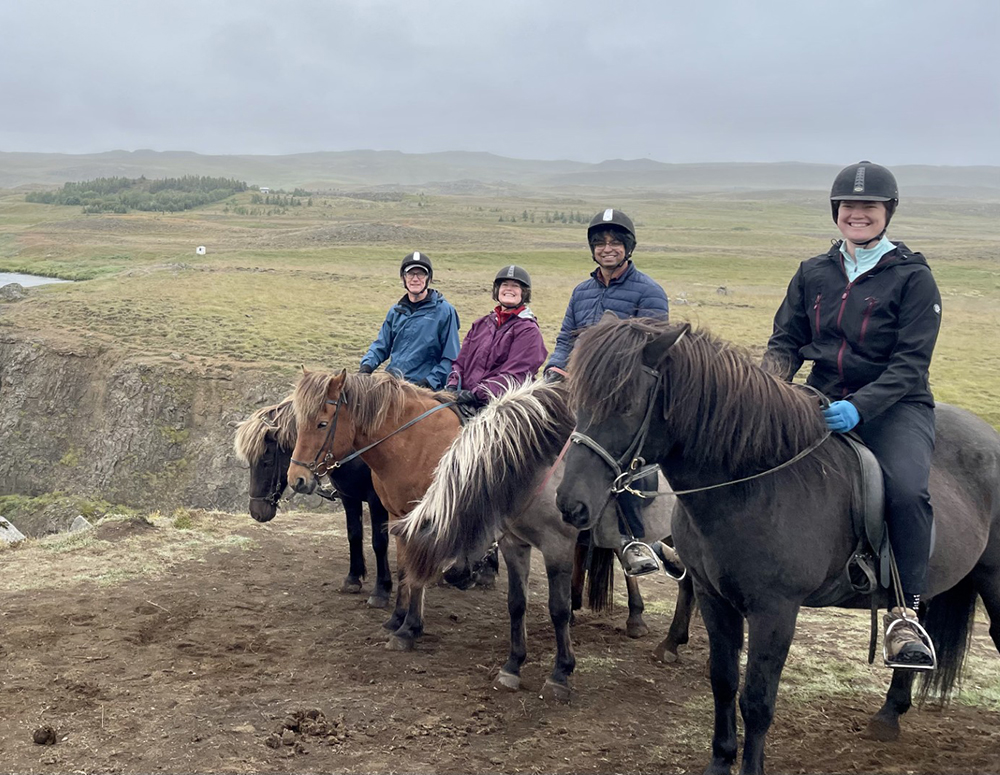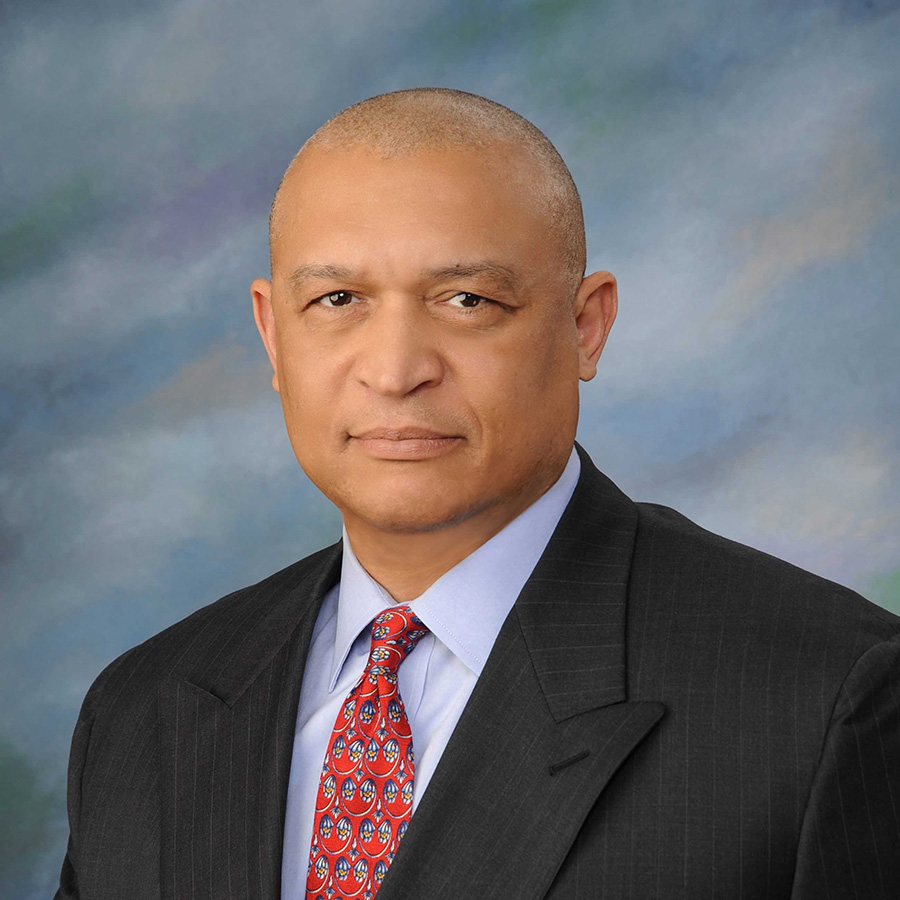

Drury University is where ambition takes on depth and purpose, guiding graduates toward influential roles in higher education, from small colleges to elite institutions, including the Ivy League. Many Drury alumni find themselves at the forefront of academia, shaping policies, championing student success, and advancing groundbreaking research. Their time at Drury instilled in them a foundation of accountability, intellectual curiosity, and a drive to build communities of learning and inclusion. As leaders and innovators, they carry forward the university’s core values, challenging norms and inspiring future generations. Today, their influence stretches across classrooms, boardrooms, and institutions worldwide, proving that Drury’s impact doesn’t end at graduation. It echoes through some of the most prestigious academic circles, where the spirit of connection and resilience they discovered on campus continues to guide their work. Here, we explore the journeys of those who began at Drury and now leave their mark on campuses and communities, weaving new connections that resonate far beyond.
Three Drury Alumni Shaping the Future of Medicine
In classrooms and clinics across the United States, Drury University alumni are redefining what it means to make an impact in higher education and medicine. Drs. Jeffrey Bradley ’89, Heidi Prather ’87, and Greg Farwell ’90 began their journeys on campus, where an education steeped in curiosity and connection propelled them toward meaningful careers and prestigious positions in academia. Today, their roles at institutions like the University of Pennsylvania and Weill Cornell Medical School echo the values they developed here, demonstrating how an education rooted in community and cross-disciplinary insight can prepare graduates to become thought leaders and advocates for change.
Jeffrey Bradley ’89
Dr. Jeffrey Bradley’s path from Drury to the University of Pennsylvania as Vice Chair for Protons and Technology Development in the department of Radiation Oncology shows how the liberal arts approach shapes a multifaceted perspective. Graduating with a BA in Biology in 1989, Jeffrey didn’t stop at science; Drury’s expansive curriculum encouraged him to take courses in English, history, music, and public speaking. “Drury’s small but rigorous environment taught me to think beyond my field,” Jeffrey reflects. “I learned how to communicate with empathy, listen, and approach problems creatively.” In a field like radiation oncology, these skills have become central to his work, helping him navigate patient interactions and lead his team with clarity and compassion.
During his time at Drury, Jeffrey met Heidi Prather, who would become his wife and lifelong partner. Their shared experience of balancing academic rigor and campus life helped lay the foundation for their mutual success. Jeffrey’s Drury journey was also marked by formative mentorships, especially with his math professor, Dr. Ted Nickle. Years after graduating, their bond was reignited when Jeffrey supported Nickle through his own health challenges. “I cherish being able to help he and his family navigate his health care during that difficult time. It’s connections like this that really matter in the mentor/mentee relationship.” Today, as a leader in oncology, Jeffrey dedicates his work to mentoring young physicians and reminding them that success is not just in outcomes but in the relationships forged and the lives impacted.
Heidi Prather ’87
Dr. Heidi Prather speaks fondly of her “trial by fire” at Drury. Pursuing dual degrees in Biology and Chemistry, Heidi took on multiple studies while engaging in sports, music, and campus organizations. “My experiences at Drury reinforced that alignment of values and purpose within an organization is key to the success of the groups I lead, my own personal satisfaction, worth, and drive to create,” she says. This adaptability became a hallmark of her career.
Throughout her time at Drury, Heidi was guided by mentors who helped her navigate the demands of a pre-med path while staying active in the arts. Her music director played a particularly influential role, helping her balance her studies and creative pursuits. “These experiences fostered my interest in mentoring. I have completed additional mentoring training and now mentor over 20 physicians across the US on a regular basis,” she reflects. This experience inspired her commitment to mentorship, which now fuels her work with medical students and young doctors. Her impact has been significant; she founded Washington University’s Division of Physical Medicine and Rehabilitation and established the Living Well Center, a pioneering program in lifestyle and physical medicine. At Weill Cornell, she is an Attending Physician at the Hospital for Special Surgery and Professor of Physical Medicine and Rehabilitation, a position through which she champions holistic, patient-centered care, deeply influenced by Drury’s culture of empathy and purposeful leadership.
Greg Farwell ’90
Dr. Greg Farwell, Chair of Penn Otorhinolaryngology – Head and Neck Surgery, developed his commitment to compassionate care and educational outreach during his time at Drury. Befriending Jeff Bradley ’89 during their undergraduate years, Greg found camaraderie and inspiration in his peers as well as his professors. His relationship with Dr. Rabindra Roy, who fostered a spirit of inquiry and excellence in his students, was pivotal in Greg’s academic and professional development. “He was very driven and instilled an unwavering commitment towards excellence that would serve me very well,” Greg recalls.
This commitment to excellence is evident in Greg’s impressive career, which includes more than 100 peer-reviewed publications and over 300 presentations worldwide on advancements in treating head and neck cancer. But beyond his technical expertise, he prioritizes mentoring young doctors and broadening access to medical careers for underrepresented students. At Penn, he organizes hands-on simulation events that introduce underrepresented students to careers in surgery, an initiative that reflects his belief in paying forward the mentorship he received at Drury.
“It’s not enough to be technically skilled — you have to be willing to create opportunities for others,” he asserts. His encouragement to Drury students echoes this belief: aim high, work hard, and know that your background is a strength. For Greg, the relationships formed and values instilled at Drury continue to influence his work, connecting his passion for medicine with his commitment to fostering diversity and inclusivity in the field.
Kinjal and Erica Majumder ’10/’10
The story of Drs. Kinjal and Erica Majumder ’10/’10 began on the Drury University campus, sparked by a shared passion for discovery in their first week in Dr. Rabindra Roy’s class. For Kinjal, who grew up in India and attended Hem Sheela Model School, the academic drive to explore the world of science took shape early on. He saw Drury University, with its robust scholarship opportunities and renowned faculty, as the gateway to his dream of studying abroad. Winning Drury’s Trustee Scholarship brought that dream to life, and Kinjal quickly immersed himself in the university’s challenging yet supportive environment. Professors like Dr. Scott Petrich and Dr. Don Deeds became central figures in his journey, instilling a sense of boundless curiosity and the courage to question. In Dr. Deeds’ immunology class, Kinjal recalls the professor entering with a basket of dry-erase markers, urging students to explore questions big and small. This openness to inquiry sparked Kinjal’s deep interest in virology, setting him on the path to exploring the mysteries of viruses and their profound impact on human health.
For Erica, Drury was a natural choice. Following in the footsteps of her parents, Chris and Cynthia Wunderlich ’78/’78, she was drawn to the opportunity to build her scientific career on her own terms. Drury offered her a community that supported her growth not only as a scientist but as a leader. Rising to president of the Drury chapter of the American Chemical Society, Erica gained confidence presenting her research at national conferences, an experience that strengthened her resolve and professional skills. Mentors like Drs. Mark Wood ’81, Albert Korir, and Beth Harville guided her through her studies, helping her develop a passion for environmental microbiology. She found purpose in exploring the delicate interplay between microorganisms and their environments, a curiosity she would later channel into projects tackling pollution and sustainable engineering.
Beyond academics, Drury’s global studies program gave both Kinjal and Erica a broader view of science’s potential to impact global health and sustainability. They realized that meaningful research could bridge borders, connecting them to a worldwide effort to address pressing issues. For Erica, this understanding took root in the way she studied the behavior of microbes in polluted environments, envisioning practical applications that could one day lead to cleaner waterways and reduced plastic waste. Kinjal’s studies in virology, inspired by the global context Drury encouraged, became a pursuit to unlock virus-host interactions that might improve gene therapy safety and lead to innovative antiviral treatments.
Today, Kinjal is an Assistant Professor of Molecular Virology and Oncology while Erica is an Assistant Professor of Bacteriology at the University of Wisconsin-Madison. Kinjal’s current research centers on small DNA viruses like Adeno-Associated Virus (AAV) and Hepatitis B, examining how these viruses interact with and sometimes hijack human cellular systems. By decoding these interactions, he hopes to advance gene therapy and cancer prevention efforts, offering new treatment avenues for patients around the world. Meanwhile, Erica applies her knowledge of microbiology to environmental health, investigating how certain bacteria can break down pollutants and help mitigate ecological damage. Her projects range from exploring bacteria’s potential to degrade plastic waste to developing methods for removing heavy metals from water, each representing a step toward more sustainable environmental practices.
Beyond academics, Drury’s global studies program gave both Kinjal and Erica a broader view of science’s potential to impact global health and sustainability.
The Majumders and Wunderlichs have started and continue to sponsor a new Research Experience for Undergraduates (REU) program called the Cellular and Molecular Biology of Stress Summer Research Opportunity Program at the University of Wisconsin-Madison, which is available for two Drury students per summer. They spend the summer doing research in both Kinjal and Erica’s labs. This research experience will enhance their competitiveness for placement in a top STEM graduate program.
The Majumders’ work now serves as a testament to Drury’s core values: curiosity, creativity, and a commitment to making a tangible difference, underscoring how strong academic foundations and meaningful campus connections can empower scientists to become catalysts for positive change.
Drury’s Legacy of Mentorship: Shaping Leaders in Business and Science
Drury University’s commitment to mentorship and intellectual curiosity has empowered alumni like James Bone ’80 and Dr. Fred Gorelick ’70 to excel at the highest levels of finance and medicine. Now leaders within Ivy League institutions, Bone and Gorelick both credit Drury’s supportive community, rigorous academics, and exceptional faculty for preparing them to make meaningful contributions in their fields. Their journeys reflect how Drury’s dedication to fostering personal growth and professional resilience has set a strong foundation for impactful careers beyond the classroom.
For James Bone, a native of Chattanooga, Tennessee, Drury offered both athletic and academic opportunities that shaped his career. Known on the court as the “Chairman of the Boards” and Drury’s all-time leading rebounder, Bone also found his academic footing under the guidance of Dr. Curtis Strube, whose mentorship inspired Bone’s future in finance. “Drury’s liberal arts education provided a foundation for what I call continuous learning and exploration,” Bone explains, “not just in business, but in understanding who I am as a person.” This growth mindset would ultimately lead Bone to executive leadership at Fidelity Investments as Chief Risk and Compliance Officer. Later, Bone brought his experience back to academia, creating a Master’s program in Enterprise Risk Management at Columbia University, where he now mentors a new generation. “Drury’s values of diversity, inclusion, and community are the foundation I share with the professionals I work with and the students I teach today,” he reflects, underscoring the enduring impact of his Drury education.
Dr. Fred Gorelick’s journey in medicine was likewise shaped by transformative mentorship at Drury. Inspired by Dr. Jorge Padron, a biochemistry professor with an unyielding passion for science, Gorelick gained academic excellence and a sense of purpose. “Doing a ‘good job’ was as high as anyone could get on Jorge’s achievement scale,” Gorelick recalls, crediting his mentor’s high standards with motivating him and his classmates to excel. This foundation would carry him through medical school and on to Yale University, where he is now the Henry J. and Joan W. Binder Professor of Medicine. As Deputy Director of Yale’s MD-PhD Program, Gorelick brings the lessons of community and mentorship he experienced at Drury into his work with emerging physicians and researchers. “Yale may be an Ivy League school, but those from Drury, Springfield, and its surroundings would feel very comfortable here — it’s very much like home,” he notes, reflecting Drury’s lasting influence on his approach to leadership and education.
Both Bone and Gorelick have leveraged the values instilled at Drury to inspire and uplift others, impacting their fields and the communities they serve. Through mentorship, they carry forward Drury’s legacy of compassionate leadership, helping students and colleagues pursue ambitious goals and create lasting change. Their paths from Drury to Ivy League institutions illustrate the transformative power of a Drury education — one that prepares graduates to lead, adapt, and contribute meaningfully, no matter where their careers take them.
Read More
DRURY MAGAZINE FALL 2024
PUBLISHER
Drury University
Dr. Jeff Frederick, President
EXECUTIVE EDITOR
Shanda Trautman
MANAGING EDITOR
Janet Rock
WRITER / EDITOR
Rex Ybañez
DESIGNERS
Max Prater, Janet Rock
PANTHER TRACKS EDITOR
Michelle Hethcoat
CONTRIBUTING WRITER
Jasmine Cooper
Drury Magazine, a publication for alumni and friends of Drury University, is published twice each year. The mission of Drury Magazine is to engage readers in the life of the university, reflect the university’s values and capture the intellectual curiosity and distinct community that is Drury.
The views presented do not necessarily reflect or represent those of the editors or the official policies of Drury University.
Share your thoughts with us: editor@drury.edu
Drury Fusion™ is a registered trademark of Drury University.



